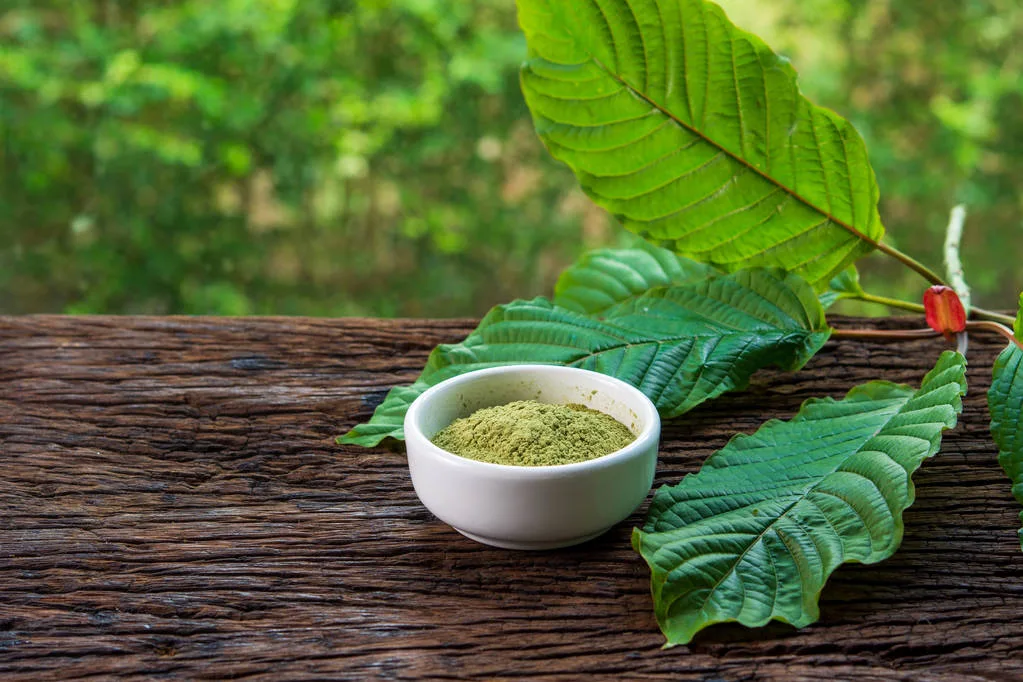Kratom, a plant native to Southeast Asia, has gained popularity in the United States in recent years for its potential benefits, including pain relief and overcoming opioid addiction.

A bowl of kratom powder, next to kratom leaves.
Despite kratom’s medical benefits, and despite it being used for thousands of years for therapeutic use, concerns about its safety and potential for abuse have led to its prohibition in several states. Here’s a breakdown of the six states where kratom is illegal, including the laws and timelines behind the bans.
Alabama
In May 2016, Alabama placed a ban on kratom. The state classified the active compounds in kratom, mitragynine and 7-hydroxymitragynine, as Schedule I controlled substances, the same category as heroin and LSD. The decision followed a recommendation by the Alabama Department of Public Health, which raised concerns about the potential for abuse and the lack of FDA regulation.
Arkansas
Arkansas also moved quickly to ban kratom, doing so in February 2016, three months before Alabama. The Arkansas Department of Health classified kratom’s active ingredients as Schedule I controlled substances. State officials cited the lack of approved medical use and the potential for abuse as reasons for the ban. The law has made the sale, possession, and use of kratom illegal in the state.
Indiana
Indiana has one of the most comprehensive kratom bans, and they were also one of the first to do so, enacted in July 2014. The state classified both mitragynine and 7-hydroxymitragynine as synthetic substances under its controlled substances act, despite kratom being a natural product. Indiana’s law not only bans the sale and possession of kratom but also imposes severe penalties for those caught with the substance.
Rhode Island
Rhode Island’s ban on kratom was implemented in 2017. The state classified kratom’s active compounds as Schedule I substances, making it illegal to sell, possess, or use kratom. The Rhode Island Department of Health supported the ban, citing concerns about the lack of regulation and the potential for abuse.
Vermont
Vermont banned kratom in 2016, classifying mitragynine and 7-hydroxymitragynine as controlled substances. The state placed kratom’s active compounds in the same category as highly addictive and dangerous drugs, effectively prohibiting its sale and possession. The Vermont Department of Health raised concerns about kratom’s safety and potential for addiction, leading to the ban.
Wisconsin
In 2014, Wisconsin passed legislation that classified kratom’s active ingredients as Schedule I substances, making the sale, possession, and use of kratom illegal. The ban was part of a broader effort to regulate synthetic substances and address concerns about the potential for misuse and health risks associated with kratom.







